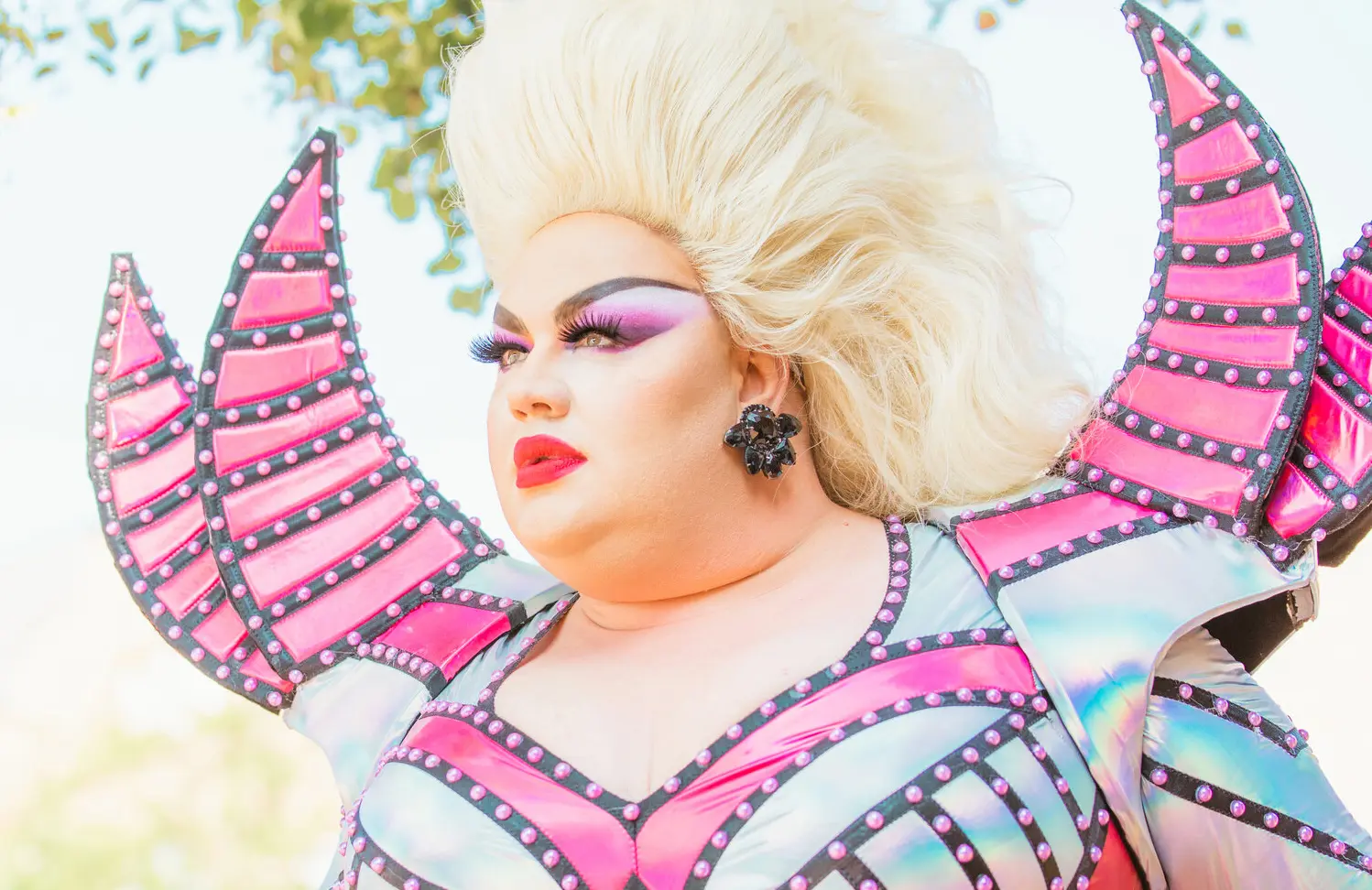Eureka O'Hara Explains the Small-Town Drag on HBO's We're Here
-
 Eureka O'Hara in We're Here (HBO)
Eureka O'Hara in We're Here (HBO)Eureka O'Hara knows what it's like to be around small-town straight people who think you're going to hell. Though O'Hara is a famous drag queen now — thanks to two stints on RuPaul's Drag Race and years of touring the world — they grew up in east Tennessee, where skipping church on Sunday can be considered a radical act.
Those roots proved crucial when the 29 year-old drag superstar filmed We're Here, the new six-part docuseries premiering this Thursday on HBO. In each episode, O'Hara (who uses gender neutral pronouns when out of drag), and fellow RuPaul's Drag Race alums Shangela and Bob the Drag Queen arrive in a small town, adopt a few drag children (i.e. people with little or no drag experience), and get them ready for a lavish show performed for a local crowd. Along the way, the queens learn their children's fascinating and often heart-wrenching stories. They also take a day for themselves, roaming the streets in fabulous costumes and interacting with startled locals.

But here's the thing: Contrary to the wish-fulfillment narrative that runs through so many stories about drag in small towns, the queens don't win everyone over. When they sashay through Branson, Missouri, someone calls the cops. When they visit Gettysburg, Pennsylvania, they hear more than one nasty comment.
Similarly, the show doesn't solve all the drag children's problems. All of them seem to make progress, and we do see moments of self-affirmation and of reconciliation with estranged family members. But we understand there's more work to be done, both for these people as individuals and for America as a nation.
"We're just scratching the surface," O'Hara told Primetimer in an interview last week. "We're giving people the outlet to change, but they have to do the rest. We might open the book, but they have to keep reading it."
Getting that book open — getting people to trust them with highly vulnerable stories with cameras rolling — required skill and compassion from all three queens. In O'Hara's case, their small-town background helped. "I was raised around a lot of 'straight-minded' people, if you know what I mean," O'Hara explains. "Very heteronormative. And I learned from a very young age how to navigate that."
In fact, in the first three episodes, all of O'Hara's drag children happened to be straight. "As queer people, we can get very nervous around straight people," O'Hara says. "We worry if we're acting right or if they're accepting us. There's so much fear there, but I could give zero fucks, honestly. And I think that's what helps people open up."
In the Gettysburg episode, for instance, O'Hara adopts Erica, who has rejected her queer daughter and is now trying to atone for her bigotry. It might be tempting to judge her, but O'Hara listens instead. They create a safe space for Erica to work through her painful past and find a new path. "When I was talking to her — and to all of the people I worked with on the show — I was just very honest about myself," O'Hara says. "When she was showing her faults, I also shared with her: 'You know, there was one point in my life when I felt this way about being gay, and I was also very religious.'"
That underlines the show's generosity. Many of the people on We're Here have complex relationships to queerness that resist the binary of "pride" or "shame." In Branson, for instance, Bob's drag child is a young man who says he stopped being gay in order to please God, and it's his straight mother who wishes he'd let himself be free. In Twin Falls, Idaho, a local drag queen reveals his biggest straight ally is his grandfather, who says he'd be lost without his queer grandson. These are complicated people doing the best they can, and the series doesn't try to "fix" them with self-help slogans. Instead, it allows them to be honest about where they are, and it uses drag to signal what else might be possible.
Speaking of those possibilities, O'Hara says the climactic drag performances were a highlight of every small-town visit: "It was wild every time. You could feel the energy... Because of the people we'd been working with and the 300 people from the town who showed up for the show, you could feel like things were going to move forward. We would have straight crew members that worked audio and lighting just crying about the energy of those performances."
We’re Here may bring viewers to grateful tears, as well. As we’re stuck at home, the show delivers moving proof of what happens when we gather in a spirit of love and kindness. It reminds us that when we’re able to assemble again, we should make room for everyone who wants to join us.
We're Here premieres on HBO Thursday April 23rd. New episodes will air weekly at 9:00 PM ET Thursday nights through May.
People are talking about We're Here in our forums. Join the conversation.
Mark Blankenship has been writing about arts and culture for twenty years, with bylines in The New York Times, Variety, Vulture, Fortune, and many others. You can hear him on the pop music podcast Mark and Sarah Talk About Songs.
TOPICS: We're Here, HBO, Bob the Drag Queen, Eureka O'Hara, Shangela Laquifa Wadle
- GLAAD Media Awards honor Hacks, Saved by the Bell, It's a Sin, We're Here and RuPaul's Drag Race
- HBO renews We're Here for Season 3
- GLAAD expresses support for an Indiana pastor after his removal for appearing in drag on HBO's We're Here
- TV Today: We're Here and The Baby-Sitters Club Return, The Voice Prepares for Battle